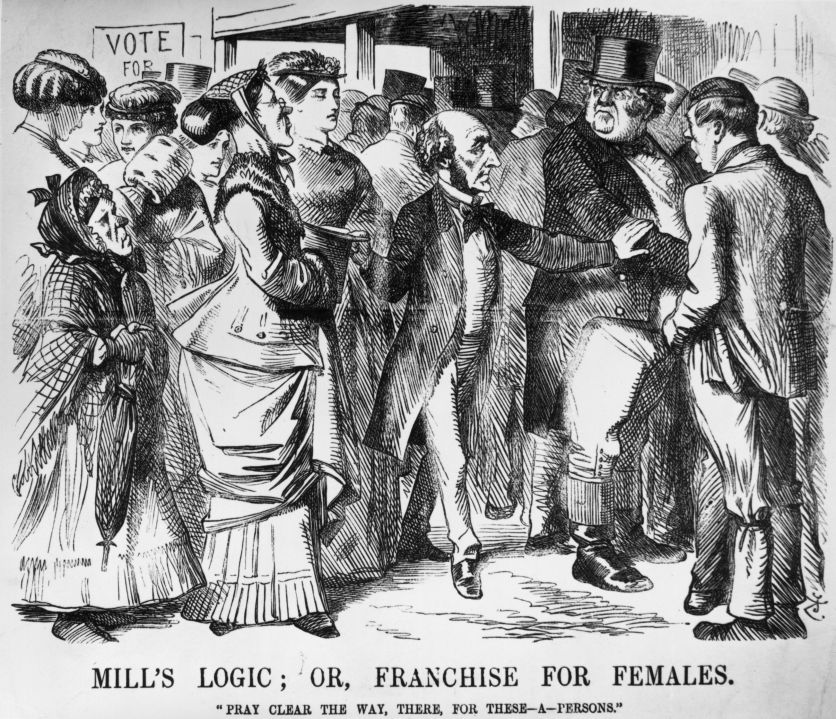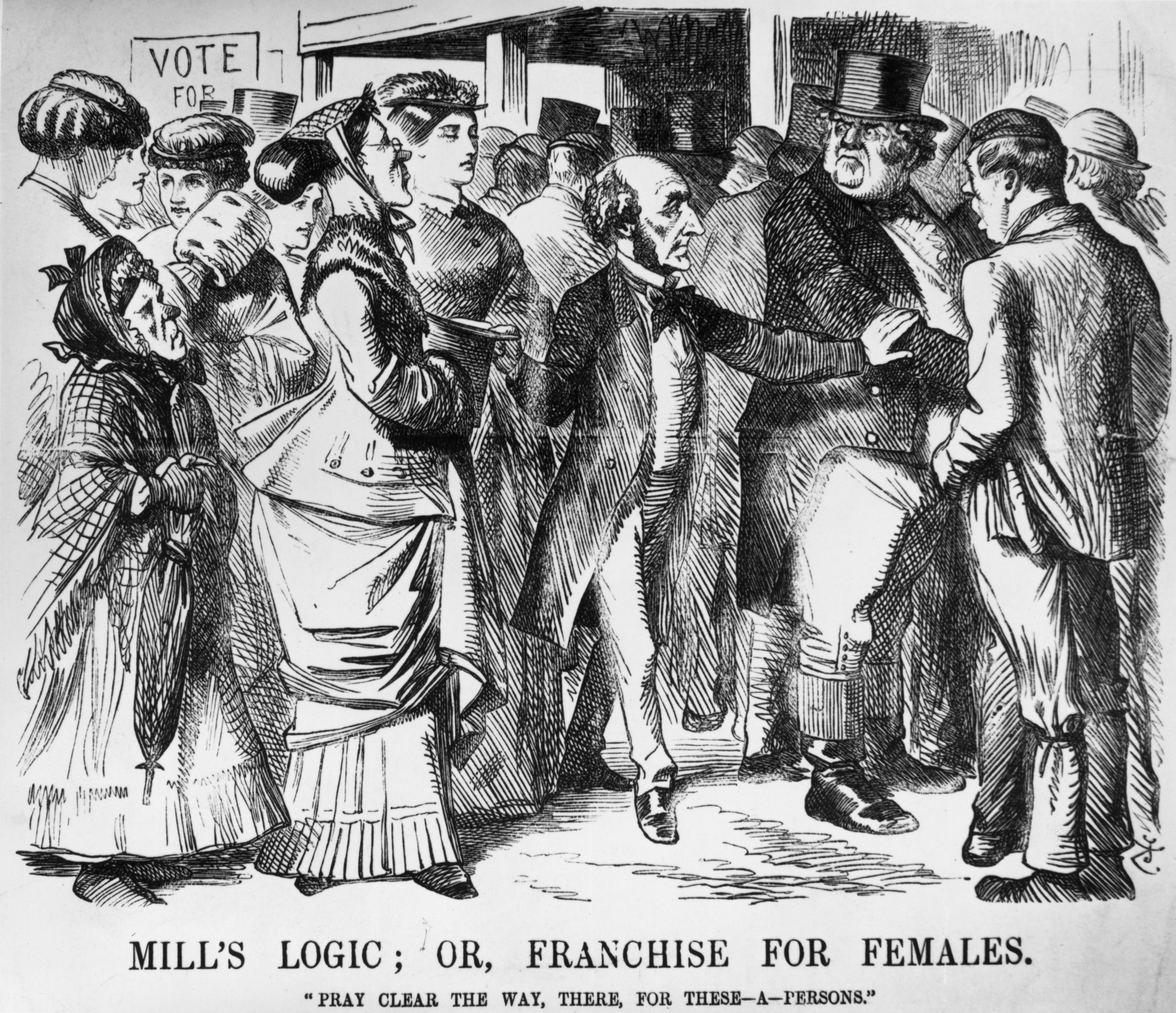Good on David Cameron for refusing to wear that hideous T-shirt. Feminists these days spend an awful lot of time telling people what to think and what to wear. It’s easy to forget the heady days of feminism’s innocence, when it lobbied for freedom, the freedom for women to operate telegraphs, for example.
The deft fingers of women were to set in action the wires of the telegraph with as much swift dexterity as they do those of the piano. They were to write messages about iron and steel and stocks and shares with the same easy celerity that they corresponded about the last new ribbon or baby’s first tooth. The sweet graciousness of their manners and the quick intuition of their brains were to make the sending of messages a task of true delight, which would refine the office boy and elevate the most elegant of clerks. The process of asking for information as to the weight of a book, or the postage to Kamtschatka, was to be a liberal education for both sexes. The inquiring male was to have his manners softened, and not allowed to be ferocious; the informing female was to have her mind broadened and her intellect strengthened by contact with the realities of life.
The article, which is from 1883, says Silly Season ought really to be called Grumbling Season because already a backlash had started.
We are told that “brazen pertness” is characteristic of female Post-office clerks, that they snub heavy fathers, and actually converse in audible tones in full official time as to the young men who have kissed them, though, happily, they are not so far sank as to relate in the same audible tones whether, like the mermaids, they returned the compliment. Not merely have they been contrasted or compared with the other sex, but other members of their own sex have been held up as examples to them. Shop girls, and even barmaids, are depicted as models of ladylike deportment, in sad contrast to the dreadful specimens, mixtures seemingly of the virago and the coquette, who fill the post-offices. Unhappily, however, evidence is adduced also on the other side. One cantankerous sender of telegraphic messages received with gratitude a lesson in manners from a young lady who licked a stamp for him, which he refused to lick himself, and a cloud of witnesses have testified to the general sweetness and light dispersed by the Post-office young ladies.
The upshot appears to be what might have been expected. The female Post-office clerk is, on the whole, not so very different from the male clerk. Most male clerks are civil and well behaved, most female clerks are the same.
Even 50 years before this, The Spectator had come out in favour of women’s lib. The Court Journal had reported that two grand ladies in Paris had had their shawls stolen from their carriage while they were dining in a restaurant. The Court Journal reporter was rather shocked:
Conceive a Princess of the blood-royal, and a Countess, sister-in-law to a reigning Sovereign, leaving their carriage at the door of Anderton’s Coffeehouse in Fleet Street (for there is no first or even second or third-rate restaurant in the Rue Neuve-des-petits-Champs), and calling for a cut of roast-mutton! They would peril their reputations at any rate, if they did not lose their shawls.
But The Spectator took a different line:
Our contemporary might have recorded the above trifling circumstance with a juster object than exemplifying for disparagement the occasional habits of females in high life in other countries. He might have instanced it to show the superiority of morals and manners in France, where two unprotected women of rank may go into a house of refreshment of the second or third class without fear of insult or peril to their reputations or their property. The anecdote only shows that men are better behaved in France than in England, and that ladies are aware of the security against impertinence attending a general diffusion of politeness. That is surely not the most moral country where trifling circumstances are most perilous to female reputation.
People who describe themselves on twitter as feminists would be proud, which is a bit annoying to be honest. These days popular feminism has pulled off a remarkable public relations stunt: it’s turned itself into the most earnest (graphic descriptions of the female anatomy don’t count as jokes) group-think philosophy around – in a strong field – while convincing the media that it’s fun and interesting; a combination of titillating pictures, online catfights and dreary nonsense do make it oddly compelling.
The rot had already set in 17 years ago, when Petronella Wyatt thought the tide must surely be about to turn.
Today’s women in the communication professions are the British equivalent of black Harvard law students in the 1960s. They are the beneficiaries of quotas and positive discrimination. They are made directors of spurious foundations and invited to discuss non-existent ‘issues’ on Newsnight. The paper-thin currency of their language is thought to be convertible into gold, or at least into reports commissioned by think-tanks.
Post-feminism, women have been given an extraordinarily easy ride…[but] there is no logical reason why women should not at some point suffer a reverse. When the rise of members of a certain group is based as much upon fashionable opinion as merit, it cannot be counted on to continue indefinitely. At present, many women are still getting away with everything short of murder — and sometimes that too, judging by recent evidence of police discrimination against men. But there are indications that this may be changing. Consider Westminster. In recent years both the main political parties — Labour in particular — have been frantically appointing women to senior posts. While there have been many excellent female politicians, others such as Harriet Harman, Ana Clwyd, Janet Anderson, the shadow minister for women, and Virginia Bottomley are indifferent advertisements for competence…These post-feminist women compare lamentably with the female politicians of the past such as Jenny Lee and Barbara Castle. One supposes this is because women in those days had little choice but to try harder in order to compete for a man’s job. This was not sexual equality and in many cases was quite disgraceful but in a way it was good for women. It kept them on their toes and meant those who did rise were of an outstanding quality.
Now that feminism’s battles have been more or less won, women, unfortunately, have been permitted to become lazy. While the great feminists of the 1970s may have had bad legs and ugly frocks many of then’ had considerable brains. Their successors are likely to have a better undercarriage but inferior attainments…If women are going to dominate the world they had better shape up.
Harriet Harman hasn’t shaped up since then. Instead she spent this week’s PMQs in a very silly T-shirt.








Comments